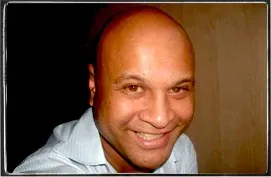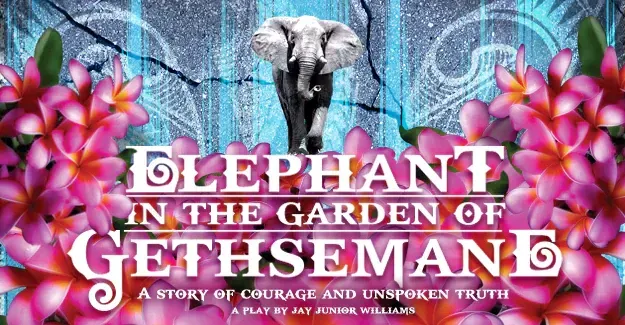A Quick Q & A with Jay Junior Williams

Jay Junior Williams is the creative director of Phoenix NZYP (New Zealand Young Performers), which he established in 2007. He is a former senior secondary school drama teacher and has a passion for using arts as a mechanism for change in youth.
He was one of the 2013 Vodafone World of Difference recipients and as part of his work with young people during the period of the award has worked with a range of groups from anti-violence campaigners to youth theatre to an inspiring visit to the New York theatre scene and most recently created a play dealing with the tough issues of youth bullying, depression and suicide.
The play called ‘Elephant in the Garden of Gethsemane’ is an ugly duckling story ending in triumph after disillusion and betrayal. A betrayal of a system that just doesn’t understand.
Elephant will be open to the public at Corban Estate Arts Centre (Shed 1) on Friday 13th December at 8pm (preceded by a directors talk at 730pm). You can find out more details at info@ceac.org.nz or ph: 838 4455, www.ceac.org.nz.
Jay answers a few quick Q & A questions about the play and the inspiration behind it.
Q1.Congratulations on being a recipient of the Vodafone World of Difference award. Tell us about the work you've done this year, Project K, and the semination of Elephant in the Garden of Gethsemane?
I've been involved in multiple projects from Matariki (drawing awareness of it's significance for Maori) Phase 1 young writers festival , Candid (showcase of emerging artists), Blood in Water theatre piece, Women's Refuge Campaign in Palmerston North, White Ribbon Campaign, Anti-Bullying Campaign in schools, visit to NYC. This is the last part of my work this year in which I wanted to further explore the issues I’m concerned with – youth bullying, change and acceptance.
Q2. Elephant in the Garden of Gethsemane tackles some troubling issues. How have you approached this in the lead up to the play?
It’s been an organic process of finding truth and meaning. I've looked at the metaphors of the land & sea, the environment and what they're telling me about intergenerational trauma, bullying and identity. Along with the work of the talented guys at Phoenix NZYP, we have really tried to look into these issues with real depth and considering it’s been quite big in the news lately, we feel that we’ve got a real affinity with it and have found a way in which to tackle the issues while keeping true to those who may be going through these things.
Q3. What essentially is the story in the play?
It’s a story about unspoken truth. Most times the one thing that can heal us & leave us in a healthy space is to talk about the shit that is often in the room but never spoken of. The story is about healing and finding inspiration in the narratives of others. Through sharing there is healing and this is pretty much something that human beings have been practising for thousands of years. It’s also about self-discovery and self-acceptance, like the story of the ugly duckling but in a much more hard-hitting gritty and real way.
Q5. You're the director of Phoenix NZYP. Can you tell us about Phoenix, its aims and the focus of the organisaiton?
Our main aim is to provide a safe platform for creative work, a platform that fosters a multi-dimensional perspective of art and gives youth the space not only to share with their peers but also with others. I like to say we develop emotional literacy and provide space for empathetic encounters in which youth can really explore themselves and their relationships with others. It’s also a place in which individuals can develop their artistic talents and we’ve seen many students go on to international success or even returning to the group as tutors while working in the arts/theatre industry.
Q6. You've also worked with Leadership NZ this year. Can you tell us about this involvement?
Leadership NZ has given me the tools to take my own style of leadership to another level, where I have learnt the deep importance of empathy and how I can best use my time & energy to cross over into various spheres.
Q7. How do you see Phoenix moving on after "Gethsemane"? What's your future vision?
Phoenix is on a pathway to creating a new space in the landscape of NZ theatre. I see Phoenix becoming more accessible to wider NZ and enacting social change through the arts. As a nation NZ is sick - instead of taking tablets we need to unbind each other so that we can move forward. Art is a mechanism to create this space and Phoenix is one of the cogs that are working to make it work.
